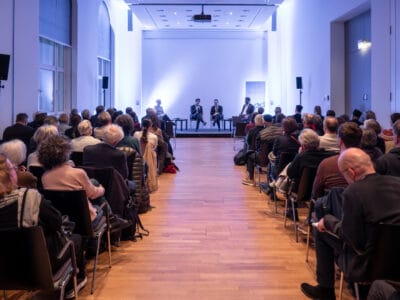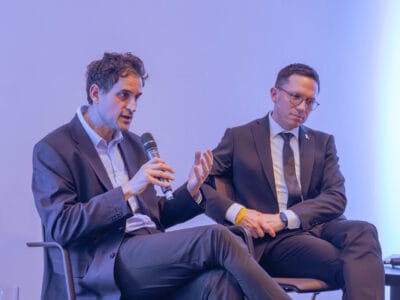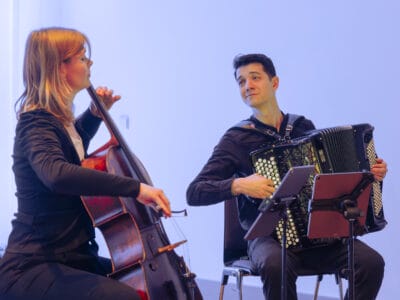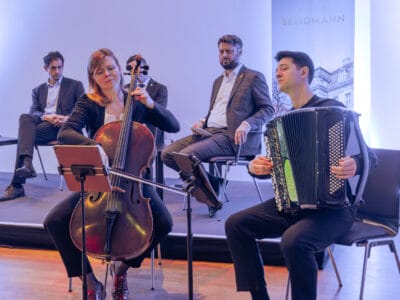Event review
Panel discussion “80 years since the liberation of Auschwitz – where do we stand today?”
Photos: © Heiner Schlote
On January 26, 2025, a panel discussion took place at the Landesmuseum Hannover in cooperation with the Villa Seligmann as part of the exhibition “KZ Überlebt”. The exhibition by Regensburg photographer Stefan Hanke, which was on display at the Landesmuseum and Villa Seligmann between October 2024 and February 2025, showed 74 and 18 black-and-white portraits of concentration camp survivors respectively.
As part of the exhibition and to mark the 80th anniversary of the liberation of the Auschwitz concentration camp, Falko Mohrs (Lower Saxony’s Minister for Science and Culture), Philipp Peyman Engel (Editor-in-Chief of the weekly newspaper Jüdische Allgemeine), Prof. Dr. Katja Lembke (Director of the Landesmuseum Hannover) and Eliah Sakakushev-von Bismarck (Director of Villa Seligmann) spoke about contemporary ways of dealing with anti-Semitism. Dr. Katja Lembke (Director of the Landesmuseum Hannover) and Eliah Sakakushev-von Bismarck (Director of Villa Seligmann) spoke about current ways of dealing with anti-Semitism, (historical) responsibility and the role of art and culture in remembering the Shoah. The event was accompanied by music from Nico Gutu (accordion) and Martha Bijlsma (cello),
“How can the incomprehensible become comprehensible? Even 80 years after the liberation of Auschwitz, the Holocaust in all its dimensions and cruelty is beyond our imagination. The exhibition ‘Concentration Camp Survivors’ gives the victims of the Nazi murder machine a face and traces individual fates – and at the same time celebrates life. This direct culture of remembrance is more necessary than ever, especially in times of rising nationalism and anti-Semitism.” – Falko Mohrs (Lower Saxony’s Minister for Science and Culture) on the “KZ Überlebt” exhibition and remembering the Shoah
Shortly after the Hamas attack on Israel on October 7, 2023, Philipp Peyman Engel wrote a book entitled “Deutsche Lebenslügen: Anti-Semitism, Again and Still” (dtv-Verlag). “It’s a very angry book,” says Engel, “that puts its finger in the wound without exaggerating.” For him, the clear naming of hatred of Jews is central, “no matter which side it comes from.” Anti-Semitism must be recognized and named wherever it occurs – whether it comes from the right, the left or the Muslim milieu.



